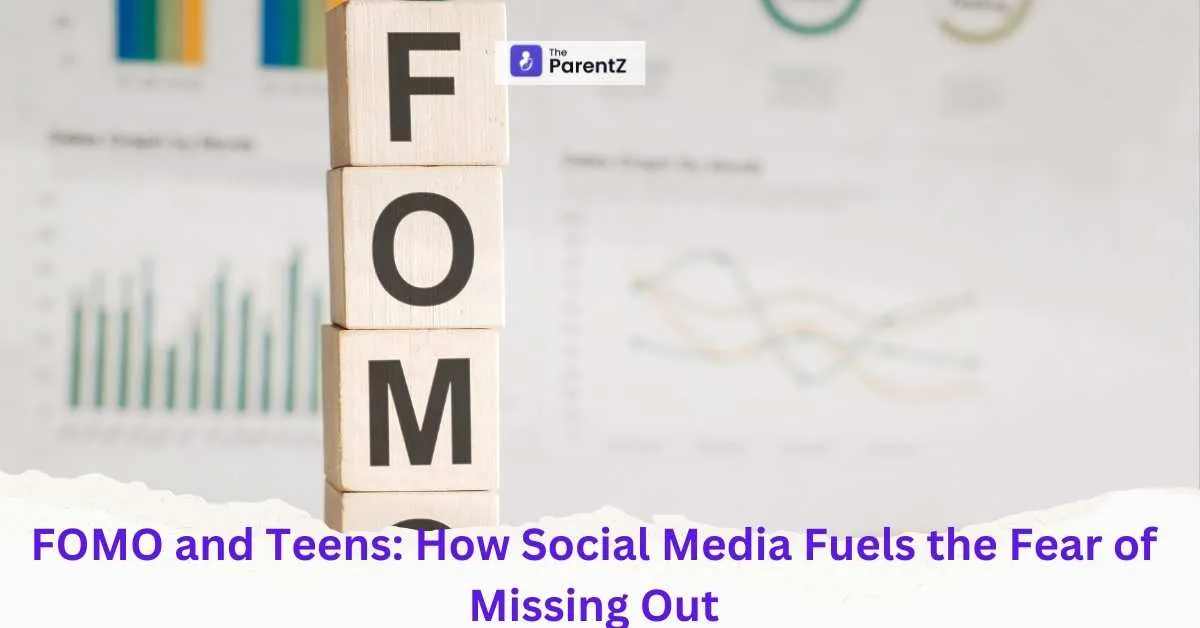The Digital Dilemma Shaping Teen Mental Health
In today’s hyperconnected world, the Fear of Missing Out (FOMO) has evolved into a significant psychological challenge for teenagers. With social media platforms like Instagram, TikTok, and Snapchat curating highlight reels of people’s lives, adolescents are more susceptible than ever to feeling left out. A 2023 study by the American Psychological Association revealed that 72% of teens experience FOMO daily, with social media playing a pivotal role in amplifying these feelings. This phenomenon isn’t just about missing out on fun—it deeply affects teen mental health, self-esteem, and overall well-being.
Social media algorithms, cultural trends, and neurological responses all contribute to the intensity of FOMO among teens. This article explores the mechanics behind this growing issue, its mental health consequences, and practical strategies that parents, educators, and teenagers can adopt to mitigate its impact.
The Mechanics of FOMO
Social media platforms are intentionally designed to keep users engaged. They employ features such as infinite scrolling, push notifications, and ephemeral content (like Instagram Stories and Snapchat’s disappearing snaps) to create a sense of urgency. This digital architecture ensures that teens feel compelled to check their devices frequently, fearing they might miss out on updates, trending challenges, or exclusive online interactions.
The Science Behind the Addiction: Neuroscientists explain that each time a teen receives a like, comment, or notification, their brain releases dopamine, a neurotransmitter associated with pleasure and reward. Over time, this reinforces compulsive social media usage, making it harder for teens to disengage.
A 2024 report by Common Sense Media found that:
- Teens spend an average of 4.8 hours daily on social apps.
- 63% of teenagers admit to feeling “left out” after seeing their peers’ posts.
- 47% of teens report checking their phones within five minutes of waking up to catch up on missed activity.
The fear of not being in the loop can lead to obsessive social media habits, making it difficult for teens to enjoy the present moment without the constant pull of their devices.
Mental Health Consequences
The pervasive nature of FOMO has profound effects on teen mental health. Chronic exposure to idealized portrayals of life on social media can lead to:
- Increased Anxiety and Depression: Constant comparison with peers can result in feelings of inadequacy and low self-worth. Teens may believe their lives are dull in comparison to the seemingly exciting experiences showcased online.
- Sleep Deprivation: Many teens stay up late scrolling through social media, afraid they might miss out on conversations or trending topics. Blue light exposure from screens further disrupts sleep cycles, leading to fatigue and decreased focus in school.
- Emotional Exhaustion: Maintaining an online persona can be draining. Teens feel pressure to curate the perfect image, from carefully selecting photos to crafting witty captions. This performance-driven approach can lead to burnout and emotional fatigue.
- Cyberbullying and Social Exclusion: FOMO isn’t just about seeing what others are doing—it’s also about what one isn’t invited to. Group photos, party snapshots, and inside jokes shared online can make teens feel alienated. Additionally, the rise of “finsta” (fake Instagram) accounts—where teens post unfiltered content for select close friends—has created secretive online spaces that heighten exclusion fears and increase social pressures.
Solutions for Achieving a Healthy Balance
Addressing FOMO requires a combination of awareness, digital mindfulness, and proactive engagement in real-world activities. Parents, educators, and teens themselves can take steps to mitigate the negative effects of social media on mental health.
1. Digital Detoxes
- Encourage device-free hours, particularly before bedtime, to improve sleep hygiene.
- Utilize apps like Screen Time (iOS) and Digital Wellbeing (Android) to set app usage limits and track screen time.
- Establish tech-free zones, such as no phones at the dinner table or during family outings.
2. Offline Engagement
- Encourage participation in hobbies, sports, art, music, or volunteering, which provide fulfillment beyond social media validation.
- Plan in-person gatherings and outdoor activities to strengthen real-world connections.
- Promote mindfulness practices like journaling or meditation to help teens focus on the present rather than what they’re missing online.
3. Open Dialogue and Education
- Parents should have open, non-judgmental conversations about social media’s manipulative design and the unrealistic nature of online content.
- Schools should integrate digital literacy programs to teach teens about social media algorithms, privacy risks, and mental health impacts.
- Encourage self-reflection by asking teens: “How does social media make you feel?” or “What activities make you happy outside of social media?”
Final Thoughts
While social media is a powerful tool for connection, it also comes with inherent challenges—especially for teenagers navigating self-identity and social belonging. By understanding the psychological effects of FOMO and taking intentional steps toward digital balance, teens can regain control over their well-being. Encouraging offline experiences, fostering meaningful conversations, and promoting healthy tech habits are essential in ensuring that social media remains a tool for enjoyment rather than a source of anxiety.
Ultimately, the goal is to help teens realize that missing out online isn’t nearly as important as being present in their real-life moments—the ones that truly matter.








Be the first one to comment on this story.